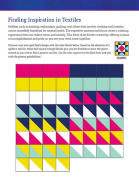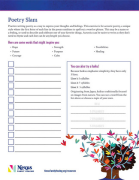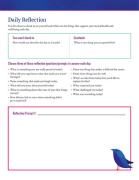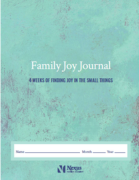September is Suicide Prevention Month. Suicide is the second leading cause of death in young people and affects all ages. At Nexus Family Healing, prevention is an important focus across our agencies. This month we are highlighting using the arts and recreation as coping skills.
These activities build skills that can help young people by providing a sense of community, building connections, creating purpose and meaning, helping to process trauma and become more resilient. All important tools in preventing suicide and building resilient mental health in youth.
Art As Exploration
Drawing, painting, sculpting, and other forms of art can help us process trauma, reduce anxiety, develop a sense of self-worth, and increase confidence. Art is a forgiving skill builder; it reminds us that perfection doesn’t exist and helps us learn to pivot when things don’t go exactly as planned.
Art as a Therapeutic Tool
Youth at our agencies often engage in art projects as part of treatment, education, or recreation while in our care. Here are some inspiring pieces created by our talented youth.
Finding Inspiration in Textiles
Knitting, embroidery, quilting, and other textile hobbies can be incredibly beneficial for mental health. The repetitive motions and focus create a calming experience that can reduce stress and anxiety. This form of art fosters creativity, offering a sense of accomplishment and pride as you see your work come together.
Music as Healing
Music has a profound impact on our emotions. Playing an instrument, singing, songwriting, or simply listening to music can lift our spirits, calm our minds, and connect us with others. Music helps us find our voice and channel harbored emotions into a beautiful and productive sound. It is a universal language that speaks to all walks of life offering comfort and a sense of community.
Mixing Beats to Help Process Emotions
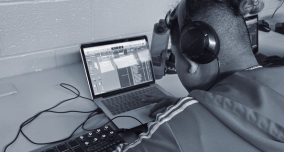
A partnership with Beyond The Natural Foundation teaches Nexus-Woodbourne youth music production, composition, and studio time to help youth on their healing journey.
Feel Good Playlist
Music is a powerful tool and can influence the way we feel. This mood-boosting playlist is curated by Nexus Family Healing youth and staff in our residential care and foster care programs featuring their favorite feel-good, uplifting songs. Enjoy!
Writing As Reflection
Writing provides a private space to reflect on thoughts and experiences. Journaling, poetry, or storytelling can help organize, bring clarity and process emotions. Writing can be particularly therapeutic for those who struggle to express themselves verbally. A great place to start a writing practice is with a daily gratitude list or with journaling.
Poetry: What Hope Means to Me
Poetry is a great way to express your thoughts and feelings. Nexus Family Healing youth write and share what hope means to them.
Poetry Slam
From acrostic to free verse, a variety of poetic styles help us explore our feelings with freedom and confidence.
Daily Reflection
Use this sheet to check in on yourself and reflect on the things that support your mental health and well-being each day.
Download Daily Reflection Worksheet
Family Joy Journals
A joy journal provides you an opportunity to identify one thing that made you smile, laugh, or feel a little lighter each day. Our four-week journal helps you share and track daily positive notes with your family.
Hobbies for Growth and Connection
Engaging in these creative and recreational activities helps foster resilience. They offer purpose, meaning, and a sense of accomplishment. They help us process trauma and our emotions, and they create connections and community—all vital components in preventing suicide and promoting long-term mental health
Finding Purpose

Nexus-Indian Oaks works hard to create learning opportunities outside the classroom that involve purpose. One of those learning opportunities is teaching the students how to operate the school’s coffee cart, Eagle Nest Café.
Find A Hobby
Finding your passions, interests, joy, do more of what you love and/or break the cycle by trying something new.
-
Cooking: Cooking is more than just preparing a meal; it’s an act of creation, sharing and community. In the kitchen, we can express creativity, focus on the present moment, and enjoy the tangible results of our efforts.
-
Gardening: Gardening can be incredibly grounding. Tending to plants, watching them grow, and nurturing life can offer a sense of accomplishment. It provides a peaceful environment where one can relax, reflect, and find solace.
-
Nature: Camping, canoeing, hiking... just being outside reduces stress, improve mood, and enhance overall well-being. Being outdoors helps us find peace amidst the chaos of daily life. It fosters curiosity and builds relaxation skills transferable to other environments.
